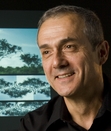Adrian Bejan's Blog, page 12
May 5, 2018
Personal Aircraft: Why The Revolution Won’t Happen
[image error]According to Prof. Adrian Bejan views, captured into this article published by Aerospace America, a fundamental law of physics will prevent the Personal Aircraft revolution to happen.
The passenger drones, sky taxis, and other personal aircraft names are buzzing and exciting the aviation industry – but Prof. Bejan explains us that flying is for faster travel over long distances, and not for short distances. In this last case, the economical movement is on land, and it is slower.
Source
Adrian Bejan, Personal Aircraft: Why The Revolution Won’t Happen , Personal opinion, Aerospace America, May 2018.
May 1, 2018
Design in Nature: the field and its future
[image error]
These concluding observations presented by Prof. Adrian Bejan, were recorded at the end of the NSF workshop at Villanova University on “Constructal Theory: after 20 Years of Exploration and what the Future Holds”.
This video will guide you through the decades of development of Constructal theory, since its very inception in Adrian Bejan student’s research work in buckling theory – and his, already, innovative understanding of, and approach to, this field of research.
References
Adrian Bejan, Design in Nature: the field and its future (42′);
2018 NSF Workshop: April 17 -18, 2018 Constructal Theory: 20 Years of Exploration and What the Future Holds.
Everything created is predicted by nature
Credit: Ephrat Livni
“Trees, streams, and traffic patterns all follow the same rule of flow.“, summarizes Ephrat Livni in her last article about Constructal theory, and inspired by Professor Adrian Bejan’s video recorded for his Franklin Institute medal, which was officially awarded to him during a ceremony, on April 19.
Sources
Ephrat Livni, Everything created is predicted by nature: A new video explains the physics of flow , Quartz, https://qz.com.
April 20, 2018
Dr. Adrian Bejan: How Cooling Laptops Led to Constructal Theory – video
This video released by the Franklin Institute celebrate Prof. Adrian Bejan’s award by retracing the personal history of Adrian Bejan and the origin and development of his constructal theory: from small electronics coolong to the explanation of how natural systems branch and flow.
Since 1824 (77 years longer than the Nobel Prizes), The Franklin Institute has been recognizing scientists and engineers – such as Prof. Adrian Bejan – who have changed the world, and our lives.
Cf. http://fi.edu/awards.
Source
Adrian Bejan: “Everything is evolution“. Credit: The Franklin Institute
Adrian Bejan to receive 2018 Benjamin Franklin Medal
The Award from the Benjamin Franklin Institute honors the Duke University professor’s development of Constructal theory, which predicts natural design and its evolution in engineering, scientific, and social systems.
Source
Adrian Bejan to receive 2018 Benjamin Franklin Medal , EurekAlert, 16 April 2018
Adrian Bejan, the J.A. Jones Professor of Mechanical Engineering at Duke University.
Credit: Duke University
[image error]
April 12, 2018
“Duke professor’s beautiful law of human progress”
Peder Zane, journalist, writer, puts it in few words “Progress is real. It is natural. It is all around us.” in the recent edition of the News&Observer .
Next week at Villanova Constructal Theory: What the future holds – NSF Workshop and Franklin Institute Symposium the community will be addressing hot topics with the major players in Constructal Theory. @constructal @newsobserver @JPederZane
March 6, 2018
Constructal Theory: What the future holds – NSF Workshop and Franklin Institute Symposium
Two tightly linked events are being organized to celebrate 20 years of research and development of the Constructal Theory – register online to participate and celebrate!
NSF Symposium – “Constructal Theory: After 20 years of exploration and what the future holds”
This one-and-a-haf-day symposium will bring speakers from both the industry and the academy at the Villanova University, Tuesday and Wednesday the 17th and 18th of April, 2018: Program of the Villanova Workshop.
Online registration and information:
http://www1.villanova.edu/villanova/engineering/newsevents/NSFWorkshop.html
The Franklin Institute Awards
– “Constructal Theory: What the future holds”
[image error] Half-day symposium, April 18, 2018, afternoon, as a tribute to the recent Franklin Institute Award granted to Professor Adrian Bejan: Program of the Villanova symposium.
Price: Free and open to the public – registration required. Refreshments will be served.
Register at: https://tinyurl.com/Bejan-Symposium
Contacts:
Dr. Jerry Jones, 610-594-8297, gerard.jones@villanova.edu
or Ms. Nancy D’Angeli, 610-519-4953, nancy.dangeli@villanova.edu
January 23, 2018
Mixed Mental Art Ep. 297 – The Physics Of Life: Prof Adrian Bejan Enters The Dojo
[image error]
Listen to this one-hour-long podcast, where Prof. Adrian Bejan discuss how he went to discover the Constructal Law : “Growing up in Soviet-controlled Romania, Adrian Bejan found himself living in system that tried to prevent of ideas, money, goods and people.
It’s only fitting then that his career would not only see him bridging the divide between disciplines but studying flow itself.
In 1995 while designing more efficient cooling systems for electronics, he was struck by the similarity between the systems that he was designing and those that occur naturally in riverbeds, capillary systems, leaves and much, much more.
And so, the constructal law was born.”
Source
Mixed Mental Art Ep. 297 – The Physics Of Life: Prof Adrian Bejan Enters The Dojo, (ca. 01 hour)
January 11, 2018
December 30, 2017
A new page on Constructal Law is available in the Blog
Click here and please spread the word.
Advertisements
Tagged: Adrian Bejan, bejan, constructal, Constructal law, design evolution, Duke, wikipedia




